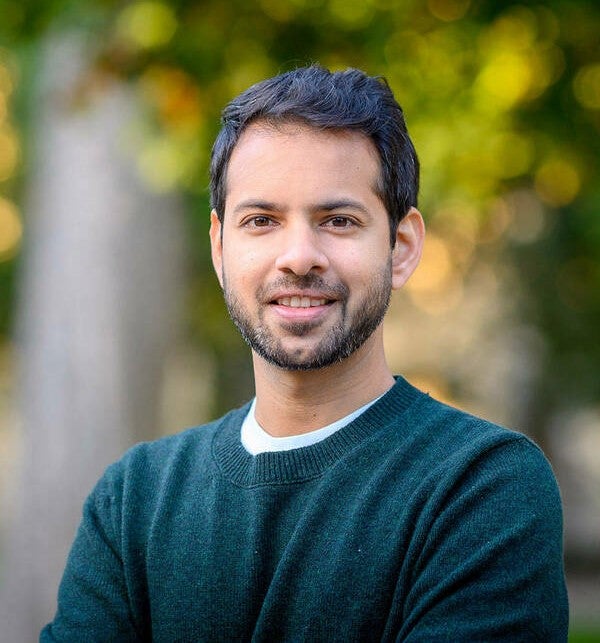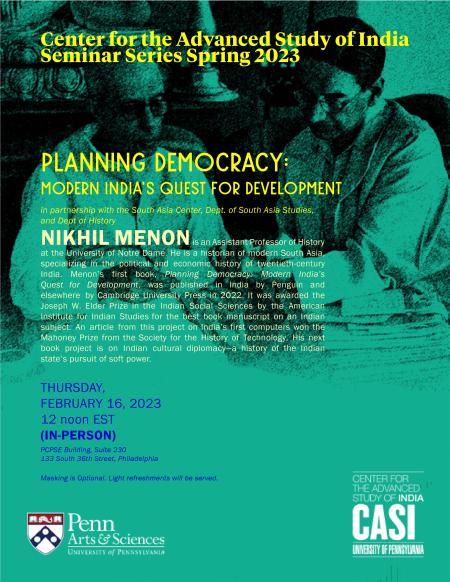Planning Democracy: Modern India’s Quest for Development
*This event does not offer a virtual option*
Center for the Advanced Study of India
Ronald O. Perelman Center for Political Science & Economics
133 South 36th Street, Suite 230
Philadelphia PA 19104-6215
*Masking is optional*
About the Seminar:
The Indian planning project was one of the postcolonial world's most ambitious experiments. Planning Democracy: Modern India's Quest for Development explores how India fused a Soviet-inspired economy and Western-style liberal democracy at a time when they were widely considered fundamentally contradictory. After nearly two centuries of colonial rule, planning was meant to be independent India's route to prosperity. Planning became more than an economic policy; in the formative years of the republic, it was a means of nation-building. Planning built India's knowledge infrastructure and data capacities while also shaping the nature of its democracy. The Five-Year Plans loomed so large that they linked surprisingly far-flung contexts—from sample surveys to computers to Bollywood to Hindutva. Set amidst global conflicts and international debates, Planning Democracy reveals how India charted a unique path to development and state-building, while walking a tightrope between capitalism and communism.
About the Speaker: Nikhil Menon is an Assistant Professor of History at the University of Notre Dame. He is a historian of modern South Asia, specializing in the political and economic history of twentieth-century India. He was educated at Delhi University and Jawaharlal Nehru University in India and completed his Ph.D. in History at Princeton University. Menon’s first book Planning Democracy: Modern India's Quest for Development was published in India by Penguin and elsewhere by Cambridge University Press in 2022. It was awarded the Joseph W. Elder Prize in the Indian Social Sciences by the American Institute for Indian Studies for the best book manuscript on an Indian subject. An article from this project, on India’s first computers, won the Mahoney Prize from the Society for the History of Technology. His next book project is on Indian cultural diplomacy—a history of the Indian state's pursuit of soft power.
Nikhil Menon is an Assistant Professor of History at the University of Notre Dame. He is a historian of modern South Asia, specializing in the political and economic history of twentieth-century India. He was educated at Delhi University and Jawaharlal Nehru University in India and completed his Ph.D. in History at Princeton University. Menon’s first book Planning Democracy: Modern India's Quest for Development was published in India by Penguin and elsewhere by Cambridge University Press in 2022. It was awarded the Joseph W. Elder Prize in the Indian Social Sciences by the American Institute for Indian Studies for the best book manuscript on an Indian subject. An article from this project, on India’s first computers, won the Mahoney Prize from the Society for the History of Technology. His next book project is on Indian cultural diplomacy—a history of the Indian state's pursuit of soft power.

